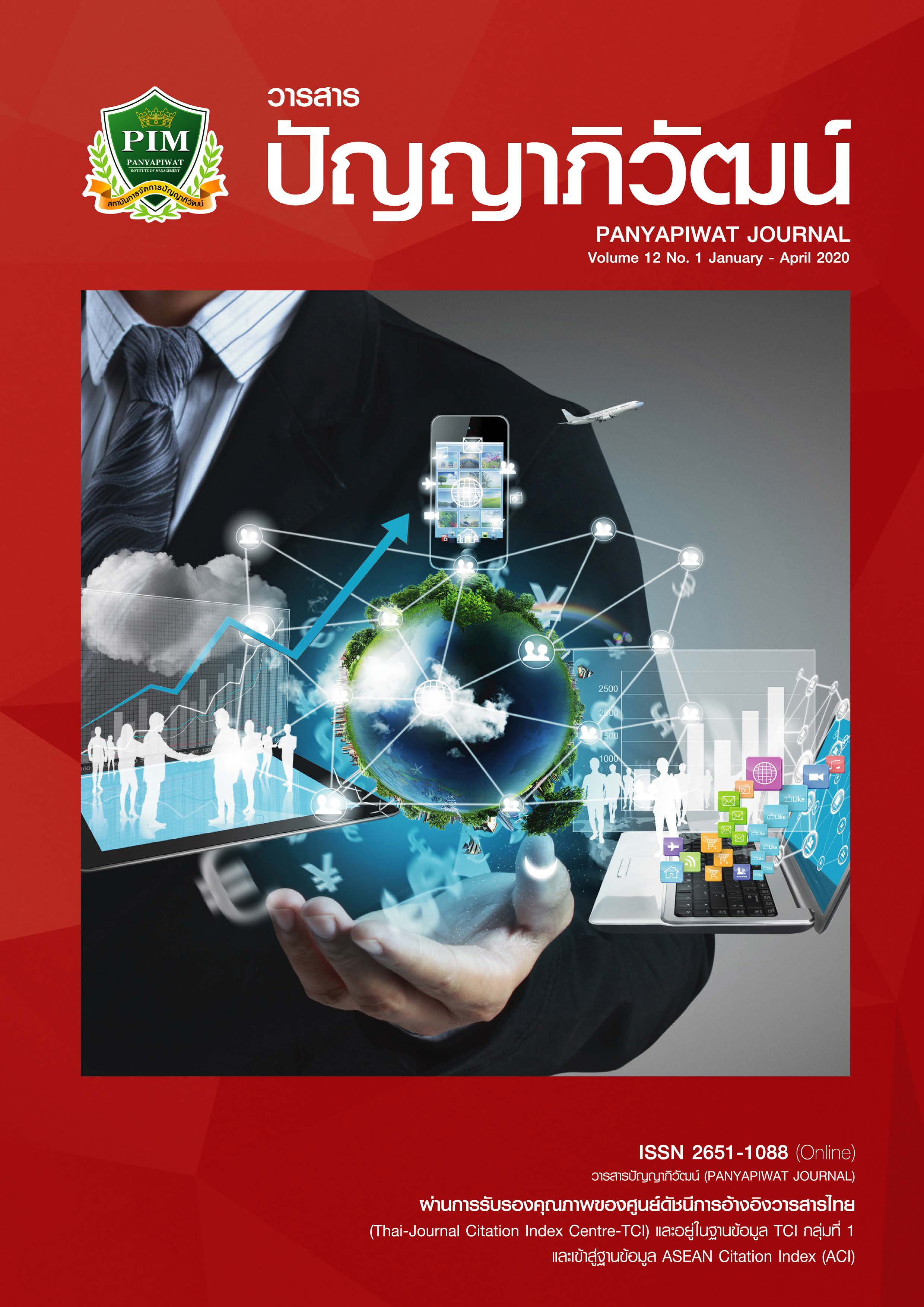ปัจจัยที่เอื้อต่อการออกแบบและการประยุกต์ใช้วิธีการสอนในรายวิชาภาษาอังกฤษสำหรับบาริสต้า
Main Article Content
บทคัดย่อ
This article aims to study the factors facilitating the designing and application of teaching methodology in the English Course for Barista. At present, the communicative approach of language teaching is widely accepted and practiced. Consequently, the principles of this approach can be applied to create various English courses, both general English courses and English for specific purpose (ESP) courses. Before designing a course it is necessary to conduct a needs assessment of the learners. Therefore, the writer conducted a needs assessment of the learners by interviewing baristas who are to be the learners in the course. The interview results reveal that the baristas would like to learn English language related to their job. The course should be designed as an English for specific purpose course rather than as a general English course. They would like to learn all skills including the listening skill, speaking skill, reading skill, and writing skill. They also would like to learn all vocabularies concerning their barista job, related grammatical principles, and the skill for work presentation in English language. Based on the above-mentioned needs assessment results, the writer has designed an English for specific purpose course that requires 30 hours of study. The contents of the course cover all English language skills. The method of instruction is based on the communicative approach with relevant learning activities.
Article Details
“ข้าพเจ้าและผู้เขียนร่วม (ถ้ามี) ขอรับรองว่า บทความที่เสนอมานี้ยังไม่เคยได้รับการตีพิมพ์และไม่ได้อยู่ระหว่างกระบวนการพิจารณาลงตีพิมพ์ในวารสารหรือแหล่งเผยแพร่อื่นใด ข้าพเจ้าและผู้เขียนร่วมยอมรับหลักเกณฑ์การพิจารณาต้นฉบับ ทั้งยินยอมให้กองบรรณาธิการมีสิทธิ์พิจารณาและตรวจแก้ต้นฉบับได้ตามที่เห็นสมควร พร้อมนี้ขอมอบลิขสิทธิ์บทความที่ได้รับการตีพิมพ์ให้แก่สถาบันการจัดการปัญญาภิวัฒน์หากมีการฟ้องร้องเรื่องการละเมิดลิขสิทธิ์เกี่ยวกับภาพ กราฟ ข้อความส่วนใดส่วนหนึ่งและ/หรือข้อคิดเห็นที่ปรากฏในบทความข้าพเจ้าและผู้เขียนร่วมยินยอมรับผิดชอบแต่เพียงฝ่ายเดียว”
เอกสารอ้างอิง
Anthony, L. (1997). Defining English for Specific Purposes and the Role of the ESP Practitioner. Dept of Information and Computer Engineering, Faculty of Engineering, Okayama University of Science. Okayama, Japan: Okayama University of Science.
Benyelles, R. (2009). Teaching ESP at Post Graduate Level: Unpublished. Doctorate Thesis, University of Tlemcen.
Brown, H. D. (1994). Principles of language learning and teaching. New York: Addison Wesley Longman.
Gatehouse, K. (2001). Key Issues in English for Specific Purposes (ESP) Curriculum Development. The Internet TESL Journal, 7(10), 1–10.
Greza, D., Valckeb & Beringsa. (2010). Peer assessment of oral presentation skills. Procedia Social and Behavioral Sciences, 2(2010), 1776-1780 (doi.org/10.1016/j.sbspro.2010.03.983)
Gudykunst & William, B. (1983). Intercultural Communication Theory: Current Perspectives. Beverly Hills: Sage Publications.
Hymes, D. (1972). On Communicative Competence. Harmondsworth: Penguin Books.
Javid, Z. C. (2013). English for Specific Purposes: Its Definition, Characteristics,Scope and Purpose. European Journal of Scientific Research, 112(1), 138-151.
Karpicke, D. J., Butler, C. A. & Roediger, L. H. (2009). Metacognitive strategies in student learning: Do students practise retrieval when they studyon their own?. MEMORY, 17(4), 471-479. (doi: 10.1080/09658210802647009)
Lamiri, E. C. (2016). An Introduction to English for Specific Purposes (ESP). Retrieved August 1, 2019, from https://faclettre.univ-tlemcen.dz/assets/uploads/DOCUMENTS/cours%20en%20ligne/4-An%20Introduction%20to%20ESP%20LAMRI.pdf
Maley, A. (1982). Whatever Next? Some Recent Current in Foreign Language Teaching. Wai yu jiao xue yu yan jiu, 19-21. [in Chinese]
Nunan, D. (1989). Designing Tasks or the Communicative Classroom. Cambridge: Cambridge Cambridge University Press.
Oxford, R. L. (1989). Language Learning Strategies: What Every Teacher Should Know. New York: Newbury House Publishers.
Ramirez, C. G. (2015). English for Specific Purposes: Brief History and Definitions. Revista de Lenguas Modernas (RLM), 23(2015), 379-386.
Richards, J. C. & Rodgers, T. S. (1986). Approaches and methods in language teaching. Cambridge: Cambridge University Press.
Richards, J. C. (2003). Approaches and Methods in Language Teaching. Cambridge: Cambridge University Press.
Simona, C. E. (2015). Developing presentation skills in the english language courses for the engineering students of the 21st century knowledge society: A methodological approach. Procedia - Social and Behavioral Sciences, 203, 69-74. (doi: 10.1016/j.sbspro.2015.08.261.)
William, B. G. (1983). Intercultural Communication Theory: Current Perspectives. Beverly Hills, CA, USA.: Sage Publications.


